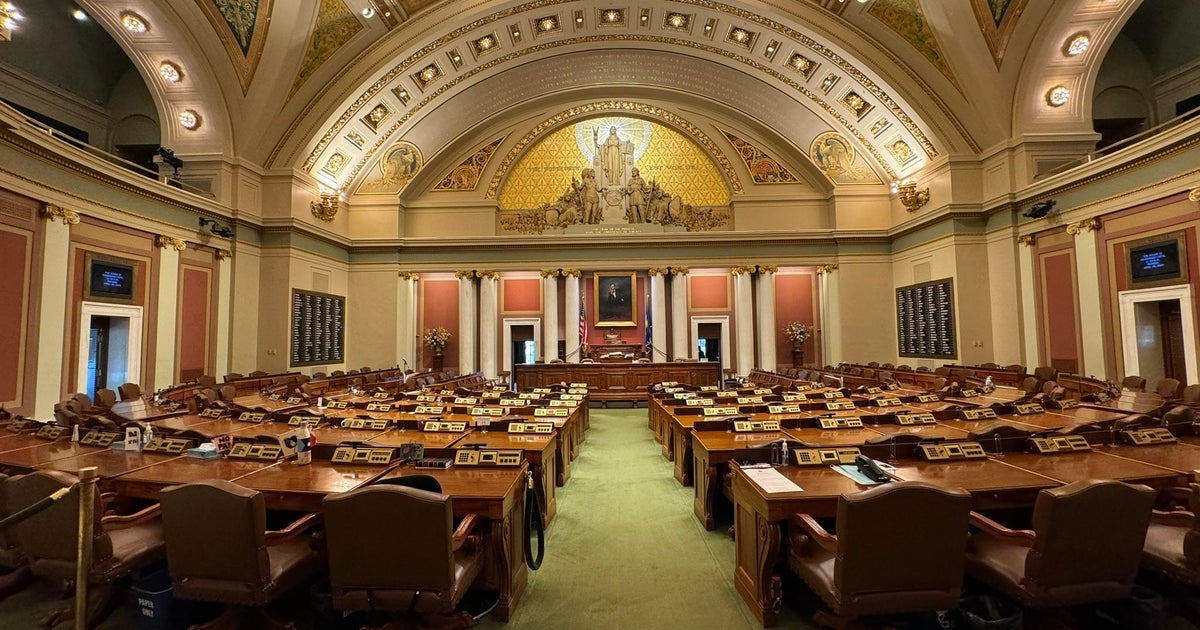Minnesota Legislature reaches deal on legalized recreational cannabis, vote likely in final days of session
ST. PAUL, Minn. -- Key negotiators working on legislation to legalize recreational cannabis for adults 21 and older in Minnesota reached a final deal Tuesday, teeing up a vote in the House and Senate in the last few days of the session.
"This has been a huge team effort through the legislature and the state of Minnesota," said Sen. Lindsey Port, DFL-Burnsville, who is carrying the bill in that chamber. "Hopefully, we have a final conference committee report for you in the next day or two. Representative Stephenson and I remain absolutely committed to getting this bill passed this year."
The legislation is the culmination of 30 committees, hours of testimony and several changes to the bill over the course of this legislative session. The final deal will legalize weed for recreational use, but also allow for new state-licensed businesses that will grow, manufacture and sell at retail dispensaries marijuana products.
Port said the deal is "locked," after Tuesday's conference committee with no additional changes. When the compromise bill gets to the floor, it's an up-or-down vote. No further amendments can be added.
On Tuesday, the committee agreed to the final areas of the proposal: taxes and spending. There will be a gross receipts tax of 10% on marijuana products. That's an increase from the House's initial proposal of 8%.
The House and Senate, both controlled by Democrats, had competing proposals this year with some key differences. Over the last several days, the bill's sponsors have been working towards a compromise behind closed doors and during three conference committee meetings on the subject. The panel includes two Republicans.
Revenues generated from the sale of these new legal products will be shared with the state and local governments - 80% to the state's coffers and the remaining 20% to cities and counties - according to the language adopted.
The new Office of Cannabis Management, tasked with the implementation of the regulatory framework for legal cannabis businesses and oversight, will get a large portion of that funding. Some of that money will also go to the University of Minnesota for research on cannabis' effects on health and drug training for law enforcement.
James Stuart, executive director for the Minnesota Sheriffs' Association, told WCCO he welcomes that investment, but is concerned about the length of that training and how it could impact staffing.
"We are in a recruitment pinch like never before," he said. "We're going to have to take law enforcement off the streets for weeks on end-per officer-to attend this training in order to maintain basic public safety levels on our streets like we have now."
Opponents of legalizing marijuana have long raised concerns about public safety. The bill includes cannabis -- from marijuana to low-dose hemp-derived THC edibles -- on the list of substances subject to DWI penalties if a person is driving while high.
"My fear is that we're going to see the increases to the emergency rooms. We're going to see youth impacted and long-term mental health issues as a result," Stuart added. "We're going to see increased fatalities on our highways if we don't proceed carefully."
There is no reliable test to determine if someone has consumed marijuana, like a breathalyzer test to determine if a driver is drunk. Minnesota's cannabis proposal would establish a pilot program within the Department of Public Safety to test oral fluid roadside tests.
The state legislature must end its regular session work by Monday.



